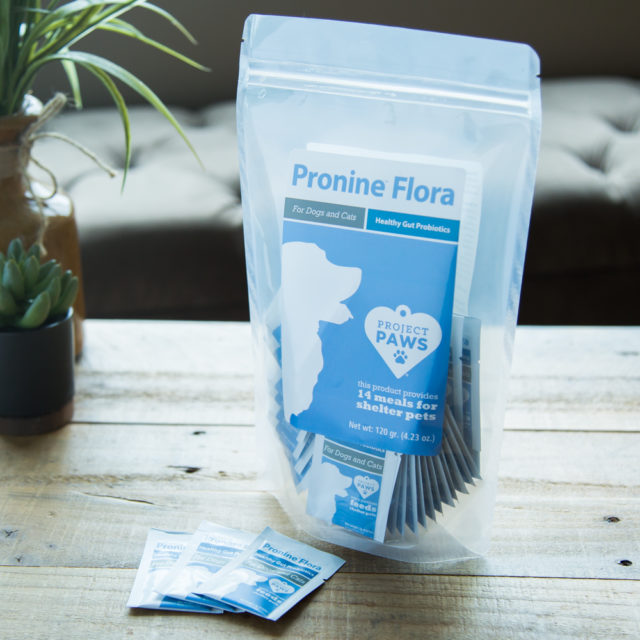
If you frequently board or travel with your dog, you may have noticed that he’s prone to diarrhea during or immediately after these experiences. These stressful situations can easily upset your dog’s digestive system. Sure, you can add pumpkin to your dog’s diet for a few days to help get things back to normal, but wouldn’t you prefer to try to avoid your poor pup suffering from diarrhea in the first place? Luckily, there is a supplement you can give your dog that may help prevent yucky poops. The answer? Probiotics.

What are probiotics?
According to WebMD:
“Probiotics are live bacteria and yeasts that are good for your health, especially your digestive system. We usually think of these as germs that cause diseases. But your body is full of bacteria, both good and bad. Probiotics are often called ‘good’ or ‘helpful’ bacteria because they help keep your gut healthy.”
We’ve known for a while now about the benefits of probiotics for people. They can help to replace the good bacteria in our gut after we’ve been taking antibiotics – which don’t differentiate between good and bad bacteria – and they can help balance the good and bad bacteria in your digestive system on a regular basis to keep your body working the way it should. Probiotics also help food move through your digestive system by affecting nerves that control gut movement.

Now, growing evidence is showing that probiotics can be effective for dogs, too. According to PetMD:
“In a peer-reviewed journal, Marcella D. Ridgway, VMD, MS, DACVIM notes that there is growing evidence that supports the use of probiotics for dogs. She states that giving your dog healthy bacteria may positively impact chronic GI abnormalities, obesity, liver disease, and mood and behavior disorders. A daily probiotic supplement may also provide some ancillary benefits for dogs such as better skin and coat appearance, a reduction in gas, improved breath, a reduction of allergy symptoms, a reduction in yeast-associated disorders, and help in regulating bowel function.”
One thing you may not realize is that the majority of your dog’s immune system lies in his gut – 70% of all immune cells live in the gut. So taking care of your dog’s digestive system can not only help prevent stress-related diarrhea, but it can positively impact his health as a whole and strengthen his immune system so that he’ll be more resistant to picking up bugs while interacting with other dogs.

How does stress affect your dog’s digestive system?
Stress makes dogs more prone to irritable bowel syndrome, which is typically marked by blood or mucus in diarrhea, and it can also weaken a dog’s immune system to make them more susceptible to diseases such as the coronavirus, which can cause runny orange or yellowish-green diarrhea.

How do probiotics affect stress diarrhea?
A study published in 2012 showed that dogs who were given probiotics before and during a stay in a kennel showed significantly fewer signs and episodes of diarrhea than dogs who did not receive probiotics. The abstract concludes with:
“Supplementing healthy dogs with [probiotics] prior to and during kennel relocation…supported optimal stool production and may help to prevent stress-related gastrointestinal upsets and diarrhea.”

Pronine™ Flora 4-in-1 Canine Probiotic, Prebiotic, Digestive Enzyme, Herb Supplement (60 ct)
If you’re ready to try probiotics for your own pup, Project Paws® Pronine™ Flora is the most complete digestive supplement available for dogs! The 4-in-1 formula provides maximum benefit while saving you money. It contains probiotics, prebiotics, digestive enzymes, and gut-soothing herbs, perfect for preventing stress diarrhea in your dog when you board or travel with him. It’s veterinarian recommended and has a tasty chicken liver flavor your dog will love. Better than that, each purchase provides 14 meals for dogs in shelters!
Learn More About the Probiotic Formula Recommended by iHeartDogs
These statements have not been evaluated by the Food and Drug Administration. This product is not intended to diagnose, treat, cure, or prevent any disease. The information on this website is not intended to replace a one-on-one relationship with a qualified healthcare professional.
(H/T: WebMD, PetMD, Cuteness, Vancouver Sun)
via Whisker Therapy
